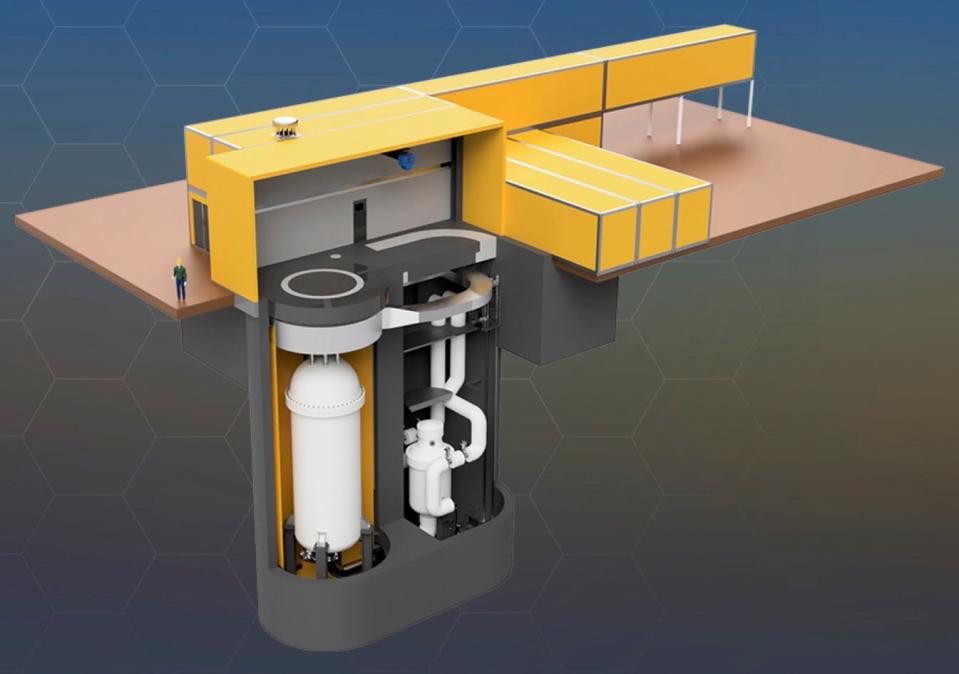Commercial tech successes predicted for OR, Knox

Mike Paulus, the director of technology transfer at Oak Ridge National Laboratory, is optimistic that some next-generation commercialization successes will be based on ORNL inventions and other local innovations. He also believes some newly successful technology companies will be located in East Tennessee.
At a recent virtual talk to Friends of ORNL, he said, “I think four new companies that licensed ORNL technologies have real potential to do something big in the not too distant future. Two of the four next-generation companies I picked are headquartered in Knoxville and a third has a presence in Oak Ridge.”
In addition, he said, the region has “two programs for entrepreneurs who might want to engage with ORNL.”

Ultra Safe Nuclear Corp., a global company headquartered in Seattle, recently opened an office in Oak Ridge that specializes in mass manufacturing technologies for nuclear fuels and materials. Through its offices in Canada, South Korea, United Kingdom and the United States, Ultra Safe Nuclear is developing the Micro Modular Reactor (also called a “fission battery”) and nuclear fuels, materials and design technologies for future small electricity-producing reactors.
“The company licensed fuel and 3D printing technologies from ORNL for small modular reactors,” Paulus said. “As the world pivots to low-carbon or no-carbon energy production, there will be a place for nuclear reactors because you will need a solid base load and this technology looks really promising.”
Base load power sources continuously produce electricity on the grid at a constant rate to meet the minimum demand for it at all times.
General Graphene, a Knoxville company that licensed ORNL process technology, is developing a method for producing large area, low-cost graphene. Graphene is a one-atom-thick layer of carbon atoms arranged in a hexagonal lattice-like chicken wire. The material is considered promising for use in improving anti-corrosion coatings and paints, sensors, electronics, flexible displays, solar panels, DNA sequencing technologies and drug delivery.
“General Graphene formed a strategic partnership and has raised $35 million,” Paulus said. “It is making graphene more cost effectively than anyone else in the world can by an order of magnitude. It is starting to see prospective customers really take interest. We are excited that this company is in Knoxville.”
A Knoxville company called Prisma Renewable Composites is developing “green” lignin-based products based on technologies licensed from ORNL and the University of Tennessee.
“This company is ready to launch its first commercial product called BioLANTM as a replacement for ABS plastic,” Paulus said. “There is an appetite for bio-derived materials that pull carbon out of the atmosphere rather than push it into the atmosphere.”
BioLANTM is derived from the cell walls of trees and grasses and from paper industry waste whereas ABS plastic is made from acrylonitrile, butadiene and styrene — chemicals derived from petroleum. ABS thermoplastics are strong, hard materials widely used in car bumpers, motorcycle helmets, golf clubs, musical instruments, auto parts, pipe fittings, electronic housings, Lego parts and other toys.
The out-of-state company Paulus listed is Solid Power Inc., a $1.2 billion initial public offering in progress in Colorado in which Ford and BMW have invested. Solid Power has licensed lithium-sulfur materials from ORNL for use in rechargeable solid-state lithium ion batteries. Such batteries with sulfide solid electrolytes will likely be in demand by manufacturers of electric vehicles. The reason: it is believed they will be safer, more stable and robust, lower-cost and longer-lasting than today’s lithium ion batteries with flammable liquid electrolytes.
Lithium-sulfur batteries, he said, have “the potential to improve battery power, operating temperature, manufacturability and cost for electric vehicles. There is a huge market for competitive solid-state batteries for electric vehicles.”
Innovation Crossroads and a new Techstars Accelerator are two regional programs for entrepreneurs interested in engaging with ORNL, UT and the Tennessee Valley Authority.
Through Innovation Crossroads, ORNL and TVA have sponsored several groups of innovators. Selected participants are awarded a two-year fellowship with stipend plus benefits via the Oak Ridge Institute of Science and Education. They may have access to ORNL through a collaborative research and development agreement. They are connected to mentors and provided with training.
“The program helps an early-stage company get a run with their technology,” Paulus said, acknowledging that “we need more incubator space in Oak Ridge.”
In June 2021, ORNL, TVA and UT announced a new Techstars Industries of the Future Accelerator for 2022. Techstars is the worldwide network that helps entrepreneurs succeed.
According to a press release, the new Oak Ridge-Knoxville–based program is “committed to supporting and advancing world-class startups focused on emerging technologies.” They include artificial intelligence, advanced manufacturing, quantum information science, 5G/advanced wireless technology, biotechnology and clean energy technology. This marks the first of the Techstars accelerator programs that is based in Tennessee and at a Department of Energy national lab.
“There are 44 Techstars accelerators in the United States, and 67 of its graduates have a market cap of over $100 million,” Paulus said, noting that the Oak Ridge-Knoxville accelerator program starts Jan. 24, 2022, for 10 participating companies.
“We bring people in for an intensive three-month program and help them build their business model and prepare to raise money,” he added. “We connect them to capital and mentors, helping them get a running start to hopefully a successful business.”
This article originally appeared on Oakridger: Commercial tech successes predicted for OR, Knox

